what we offer
Our courses
It’s time to take charge of your summer!
Explore our course offer for 2026 and apply today.

This course is designed around the data science lifecycle to show the techniques for handling a data science project. You will be exposed to basic programming skills in Python and learn how to select, clean, analyse, visualise and interpret data.
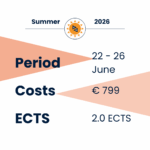
This course explores how social movements and counter-movements shape societies across the political spectrum. Using global case studies, students examine why people mobilize, how movements grow, and what leads them to succeed or decline. Topics include activism, repression, digital media, and political resistance. By the end, students gain insight into how collective action drives social and political change.
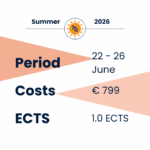
This course examines how food systems, climate change, and biodiversity are deeply interconnected. Students explore the impacts of intensive agriculture and learn how regenerative and indigenous farming practices can restore ecosystems. Through case studies and interdisciplinary approaches, participants develop solutions for sustainable food systems. The course emphasizes ecological, social, and economic resilience for the future.
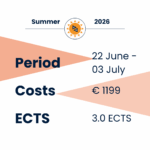
This course explores how organizations can combine strong performance with social responsibility. Students learn how HR practices and leadership styles affect employees, organizations, and society. Using real-world cases and personal reflection, participants apply key leadership and development frameworks. The course supports students in creating their own future leadership plans.
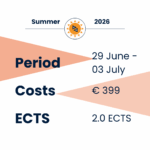
The focus of this course lies on understanding Sustainable Development Goal (SDG) 16, and the role of access to justice to enhance SDGs. It explains the concept, the connection to other SDGs, and the advances made in the national agendas.
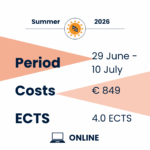
This course introduces you to the approach, concepts and methodology of game theory using simple puzzles compiled over nearly two decades of teaching game theory, along with articles from reputable newspapers addressing contemporary societal problems. Through working on such puzzles, you will gain practice with examples, enabling you to analyse real-world problems described in articles with game-theoretic tools.
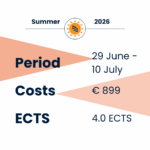
This course introduces you to the approach, concepts and methodology of game theory using simple puzzles compiled over nearly two decades of teaching game theory, along with articles from reputable newspapers addressing contemporary societal problems. Through working on such puzzles, you will gain practice with examples, enabling you to analyse real-world problems described in articles with game-theoretic tools.
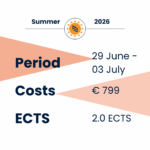
Developing effective risk management and crisis management strategies is of vital importance to organisations in today’s business environment. This course helps you navigate modern challenges with an overview of key concepts and issues in the field of risk and crisis management. Case studies are used to outline key frameworks and strategies in order to demonstrate how organisations of all sizes can respond to challenges and obstacles in an era of uncertainty.
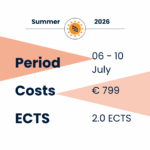
You will look at human trafficking and sexual violence in conflict, both in their own right and together. This will contribute to a better understanding of the opportunities and challenges involved and to finding ways forward in addressing these timely crimes.

This course was designed for students who are interested in the aid/development sector as well as students who are interested in logical models that can be applied to project design. During the course, you will develop your project design, monitoring and evaluation skills as well as your analytical and presentation skills.
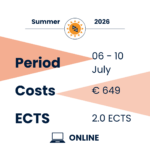
This course aims to make you a financial analyst. You will learn how to analyse financial statements of two or more corporations (such as Microsoft and Apple) to compare and contrast the performance, liquidity, and solvency from the points of view of a manager, banker or shareholder.
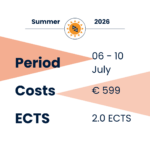
Unlock the secrets to successful investment management with this comprehensive course, now enriched with cutting-edge AI integration through ChatGPT. Whether you’re a seasoned professional or retail investor, this course delves into the latest investment strategies, performance evaluation techniques, and the transformative power of artificial intelligence.
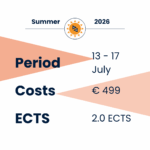
This course offers a comprehensive exploration of the major psychological disorders found in adults. You will examine the impact of biological, psychological and environmental causes in these disorders, and the relevance of gender, race and culture in their treatment. Contemporary issues like stigmas and new treatment research will also be discussed for effective application in a modern clinical practice.

This course was designed for students who are interested in the aid/development sector as well as students who are interested in logical models that can be applied to project design. During the course, you will develop your project design, monitoring and evaluation skills as well as your analytical and presentation skills.
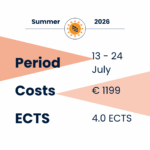
Hone your creative writing skills with this two-week course, which is designed to provide you with the literary tools, knowledge and practice to put your creative ideas to paper. You will focus on writing short stories and learn from an academic expert in literature and creative writing, who is also an accomplished short story writer and novelist.

The ability to effectively harness data and communicate its insights is a game-changing skill every professional and student must have. This course provides the theoretical background as well as a deep dive into the fusion of data visualisation and storytelling, two competencies that not only facilitate information dissemination but also set you on the path to becoming a clearer communicator and an invaluable asset to any organisation.
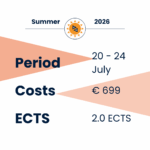
Social innovation is an intentional, positive and creative shift in systemic social-ecological patterns. Business and organisations are increasingly being called upon to experiment and act for social benefit in this manner. This course will introduce you to social innovation and entrepreneurship theory in order to critique organisations and craft innovative strategies across fields.
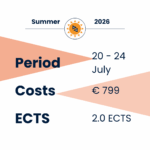
This course extends from a micro to a macro perspective to explore the relationship between marketing and society and the impact of markets and marketing practices in our current world. It encompasses elements of business and consumer rights, sustainability, social marketing, critical marketing and consumer society.
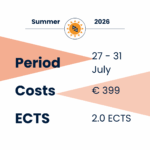
This course examines the real drivers and dynamics behind global migration. Using Hein de Haas’s work, students analyse economic, political, social, and environmental factors shaping migration. The course challenges common myths and explores how migration affects both migrants and societies. Students develop a nuanced understanding of migration as part of global change.

This course focuses on building resilience and personal strength during times of uncertainty and challenge. Students explore mindset, communication, boundary-setting, and self-awareness through interactive and reflective activities. The course helps students to better understand their own personality and reactions to change. By the end, students gain practical tools for both personal and professional growth.
